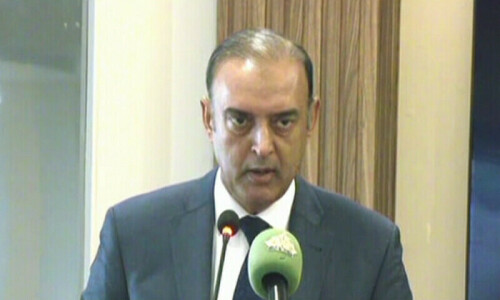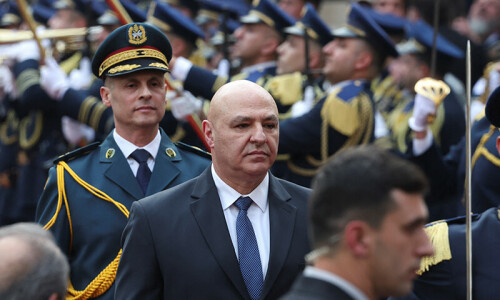DUBAI: A prolonged decline in oil prices will likely slow the economies of the energy-rich Gulf States and impact their massive infrastructure projects, Standard and Poor’s Ratings Services said on Monday.
“The recent drop in hydrocarbon prices, if sustained, could have a significant impact on the region’s economic and financial indicators... and dampen economic growth,” S&P said in a report.
On average, energy revenues for the six Gulf Cooperation Council (GCC) states constitute 46 per cent of their gross domestic product (GDP) and three quarters of their exports, the report said.
Total GDP of the GCC states — Bahrain, Kuwait, Oman, Qatar, Saudi Arabia and the United Arab Emirates — hit $1.64 trillion last year, according to the International Monetary Fund (IMF).
S&P viewed Bahrain and Oman as most vulnerable to a decline in the hydrocarbon market, and Qatar and UAE as the least vulnerable.
“While the Gulf countries’ significant oil and gas reserves are key supports for their sovereign credit ratings, their economies’ concentration in the hydrocarbon sector is also a significant vulnerability,” it said.
It said the decline will hurt infrastructure projects and the private sector.
The agency revised Brent oil price at $85 a barrel for the rest of the year and $90 a barrel for 2015 and beyond. The assumption is very close to most of the GCC’s budget price for oil.
Lower government revenues may also result in more efforts to tackle energy subsidy reform, but this is likely to hurt industries reliant on feedstock subsidies, such as petrochemicals.
A top World Bank official said last week that the GCC states, which pump a fifth of the world’s crude oil, spend more than $160 billion on energy subsidies annually, and called for immediate cuts.
IMF chief Christine Lagarde warned last month that GCC states will face budget shortfalls if the recent decline in oil prices persists.
Oil prices have lost about 30 per cent since it started to decline in June.
The total revenue of the GCC states — 90pc of which come from oil — more than doubled from $317bn in 2008 to $756bn in 2012.
It declined slightly to $729bn last year, according to IMF estimates.
IMF has said that GCC states will not be greatly affected in the short-term as they can tap into their massive fiscal reserves estimated at $2.45tr.
Published in Dawn, November 11th, 2014















































